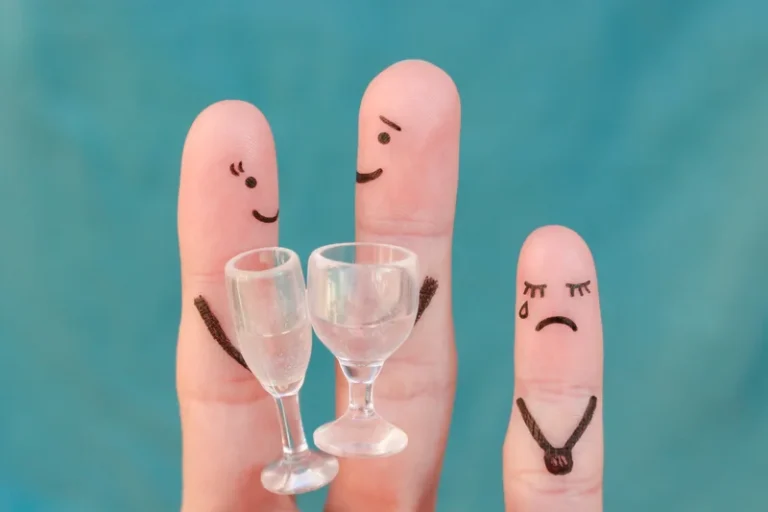
Furthermore, research has shown that excessive alcohol consumption can lead to insulin resistance in the liver which can also contribute to sugar cravings. Yes, it is very common for recovering alcoholics to experience sugar cravings. This is because sugar can provide a similar feeling of pleasure and reward as alcohol, due to its effect on the brain’s reward center. Regular alcohol drinkers, who have become tolerant to sugar from their alcohol intake, often experience cravings for sugar post-recovery from alcohol abuse. These cravings are part of the sugar cravings faced by individuals new to abstinence from alcohol and can lead to a sugar addiction. The primary text of Alcoholics Anonymous suggests keeping candies on hand to combat these cravings.
Shane Walker of WBOC & Russ Francome Shed Light on Substance Abuse in Foster Care
- Healthy alternatives may sound boring or may make you roll your eyes, but that’s only because we get used to instant gratification while we’re drinking.
- Focusing on healthy, natural alternatives can be an effective way to manage your sweet tooth after quitting alcohol.
- Alcohol use disorder can have a significant impact on the body’s nutrient levels, leading to various nutrient deficiencies.
- These nutrients provide a steady release of energy and help to stabilize blood sugar levels.
Learn how to use the term “relapse” confidently and understand its role in the journey of recovery. Explore the key predispositions to substance use disorders, from genetics to environmental influences and mental health. Discover how do behavioral therapies treat drug addiction, offering effective paths to healing and recovery.
Factors Contributing to Sugar Cravings
In the context of sugar and addiction, sugar triggers dopamine release in a similar way to addictive drugs, making high-sugar foods more rewarding and pleasurable. This can be particularly tempting for people with a substance use disorder whose dopamine reward networks have been compromised by addiction. While it might be a relief to crave something else after quitting alcohol, sugar cravings must also be managed. Eating a healthy diet and recognizing that sugar addiction is a potential risk of a successful recovery can help you avoid transferring your https://ecosoberhouse.com/ addiction from alcohol to sugar. Seeking treatment for alcohol addiction is crucial in order to achieve long-term recovery and improve overall well being.

Renewal Center for Ongoing Recovery

Discover how to cope with having narcissistic parents and embark on a journey towards healing and self-care. Unravel the difference between CBD vs THC, exploring their effects, legality, and health benefits. Unlock the facts about substance-use treatment insurance coverage, from legal requirements to claiming methods. Opioids are why do alcoholics crave sugar a powerful and effective group of medications used most commonly for pain relief.

They can also provide emotional support and help recoverees navigate other aspects of their recovery journey. A significant concern for recovering alcoholics is the intensity of sugar cravings. ‘ Understanding these cravings and managing them effectively can be a significant part of the recovery journey.
- Additionally, avoiding processed and sugary foods can help prevent further blood sugar fluctuations.
- Seeking assistance from healthcare professionals, support groups, therapists, or counselors can provide valuable guidance and help individuals navigate their recovery journey.
- In addition to increased sensitivity to sweet tastes, alcoholics also tend to have a preference for sweet drinks.
- In conclusion, preventing a sugar relapse in recovering alcoholics involves a comprehensive approach that includes sugar substitution strategies, weight management, and nutritional balance.
It is important for individuals with co-occurring conditions to work closely with healthcare professionals to develop a comprehensive treatment plan. When it comes to understanding sugar cravings in individuals with Alcohol Use Disorder (AUD), there are several physiological factors that play a role. These factors include nutritional deficiencies and blood sugar imbalances. When exploring the reasons behind sugar cravings in individuals with Alcohol Use Disorder (AUD), it is important to consider the psychological factors that contribute to these cravings. Two significant factors in this regard are emotional eating and coping mechanisms, as well as the impact of stress on cravings. Similarly, the consumption of sugar also activates the brain’s reward system.
A Comprehensive Look at the History of Drugs

Physiologically, alcohol can affect blood sugar levels and insulin resistance. Excessive alcohol consumption can disrupt the body’s ability to regulate glucose effectively, leading to imbalances that can trigger sugar cravings. Moreover, alcohol can interfere with the brain’s reward pathway, causing changes in behavior and reinforcing cravings for rewarding substances like sugar. Recovering from alcoholism can be a challenging journey, and understanding the reasons why recovering alcoholics may turn to sugar can help in developing effective coping strategies.
